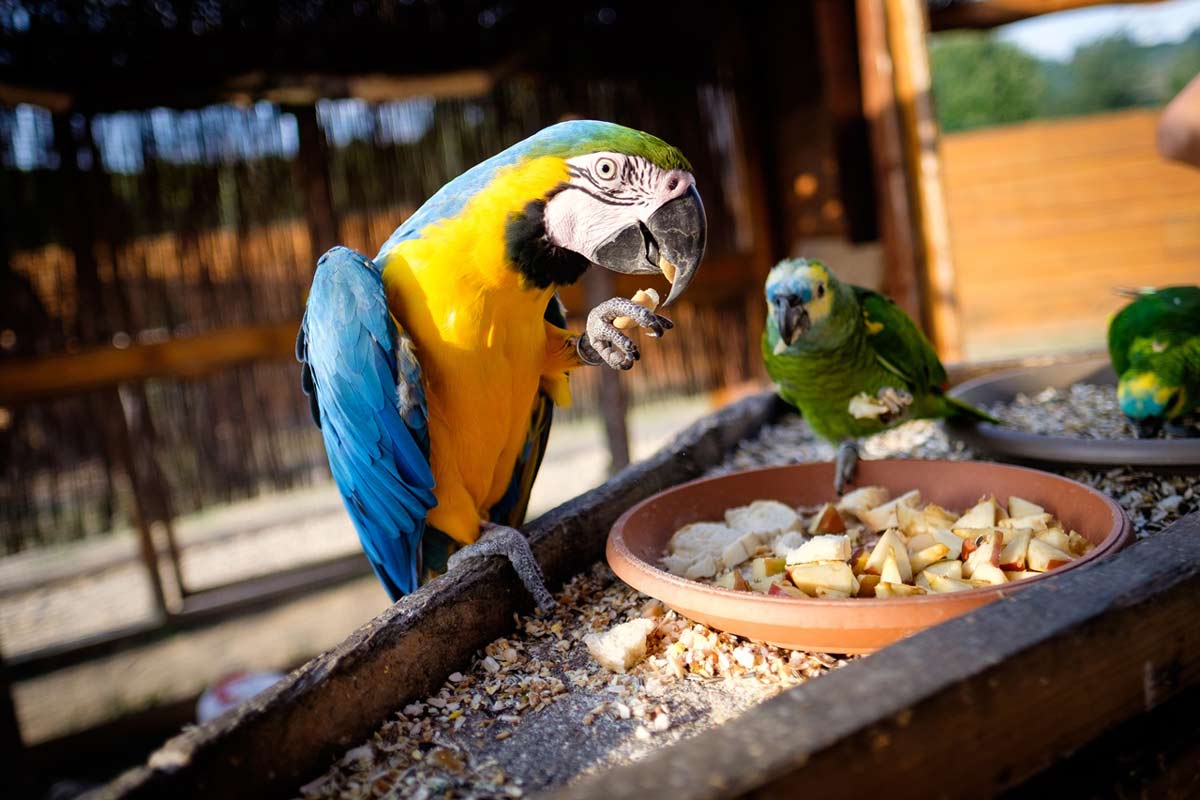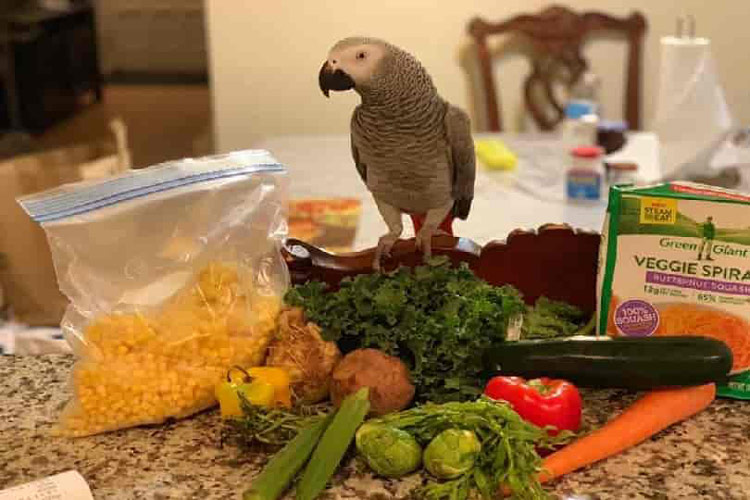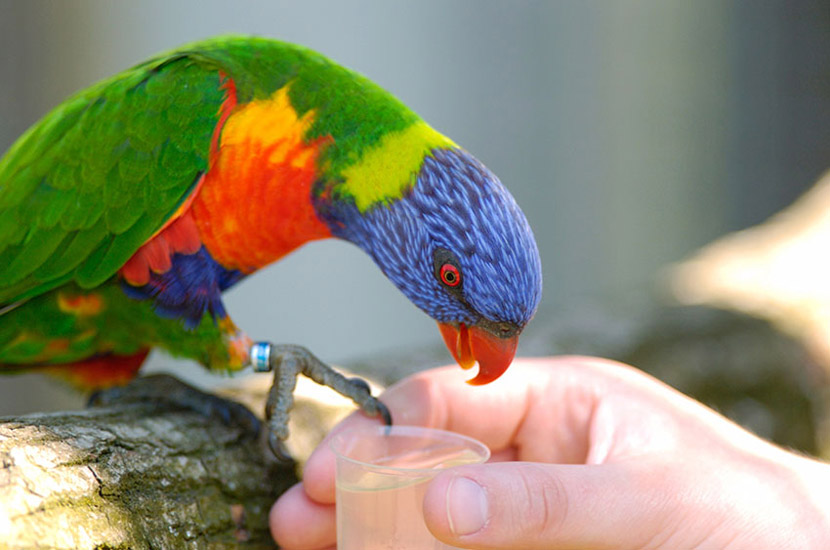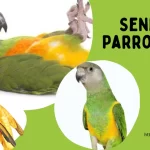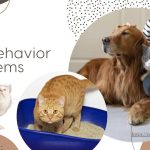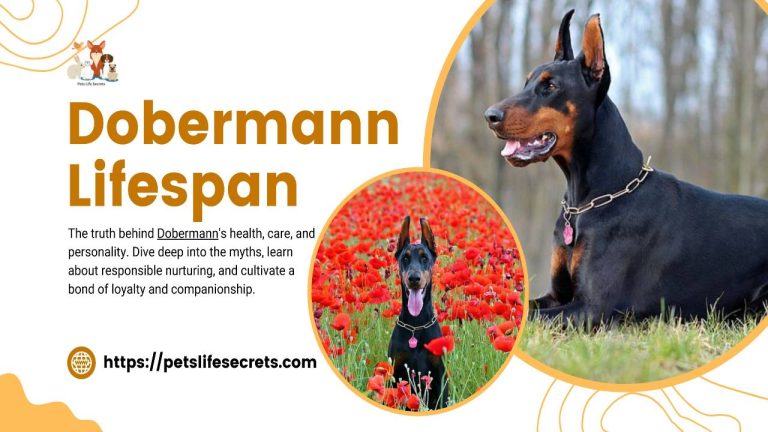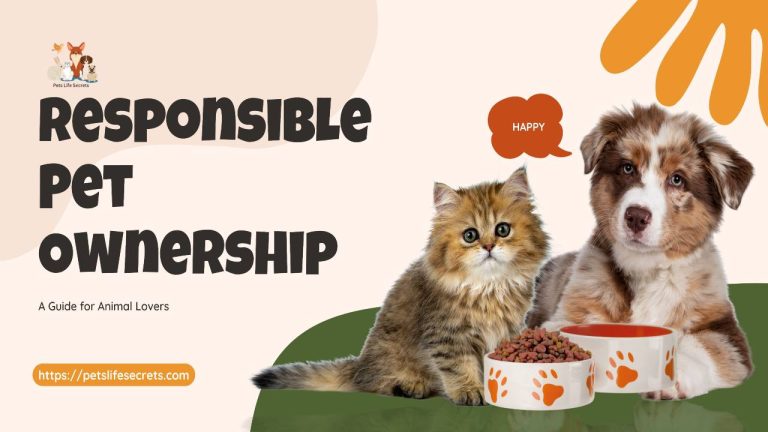Introduction:
Table of Contents
For our feathery companions’ general health and well-being, a balanced, nutrient-rich diet is essential. With their vivid colors and jovial personality, parrots need specially designed food to flourish. In order to guarantee your avian friend leads a healthy and happy life, we will go through the essentials of a parrot’s nutrition in this blog article, including necessary nutrients, appropriate food alternatives, and feeding advice.
Understanding the Nutritional Needs of a Parrot:
Due to their high metabolic rates and busy lifestyles, parrots have specific nutritional needs. The following vital elements are often found in a parrot’s well-balanced diet:
a) Fresh Water: Ensure that your parrot always has access to fresh, clean water. To keep things sanitary, change the water every day.
b) Pellets: The core of a parrot’s diet should be high-quality, commercial pellet blends created especially for them. Because they are balanced nutritionally, your bird will get all the necessary vitamins, minerals, and protein. About 50–60% of your parrot’s daily meal consumption should be pellets.
Introduce a range of fresh fruits and vegetables to your parrot’s diet as part of strategy c. Leafy greens, carrots, broccoli, bell peppers, apples, berries, and oranges are some examples of them. These foods provide essential antioxidants, vitamins, and minerals. To guarantee a variety of nutrients, try to offer a combination of hues.
c) Grains and Legumes: Include legumes like lentils and chickpeas together with healthful grains. These meals offer added protein, fiber, and complex carbs.
d) Healthy Fats: Provide a variety of sources, such as nuts, seeds, and avocados, in moderate amounts. These give the parrot the vital fatty acids it needs for healthy skin, feathers, and general development. However, use moderation because consuming too much fat might result in weight gain.
Foods to Avoid:
It’s critical to understand both the foods to include and the foods to exclude from your parrot’s diet.
a) poisonous Foods: Some foods should never be offered to parrots since they are poisonous to them. These include chocolate, coffee, wine, apple seeds, onions, and garlic as well as avocado pits. Before introducing any new food to your parrot’s diet, use caution and do your homework.
b) High-Fat and Sugary Foods: Although a limited quantity of healthy fats is essential, stay away from serving greasy or fried foods, as well as sugary snacks, since they promote obesity and can have negative effects on health.
Feeding Advice:
a) Freshness and Variety: Make sure the food you provide is fresh. After a few hours, discard any unfinished fruits or vegetables to avoid spoiling. By gradually introducing new items, you give your parrot time to get used to the flavor and texture.
b) Food Display: Parrots are inherently inquisitive birds. Present their food in a variety of ways, such as by skewering or hanging fruits and vegetables, or by giving them foraging toys. This piques their interest in foraging and enriches the feeding process.
c) Watch Portion quantities: Since each parrot has a varied appetite, it’s crucial to watch their portion quantities and make adjustments as necessary. To discover the right amount of food for your particular parrot species, speak with a veterinarian or avian nutritionist.
d) Treats in Moderation: Treats should only be provided seldom and should be used as a training aid or as an incentive for good behavior. Choose healthful snacks that are safe for parrots, including little pieces of fresh fruit or unsalted almonds.
Routine Veterinary Exams:
For monitoring your parrot’s general health, regular visits to an avian vet are essential. A veterinarian can address any worries you may have, provide advice on keeping a balanced diet, and offer insightful information on the dietary needs of your bird.
In conclusion, preserving your parrot’s long-term health and vigor through proper feeding is essential. You may support your feathered friend’s health and well-being by offering a varied diet that includes pellets, fresh fruits, vegetables, nutritious grains, and sometimes, treats. Always provide clean, fresh water for your parrots, and ask a doctor for advice on the best food for their species. You can contribute to your parrot’s happiness and health for years to come with a balanced diet and a little tender love and care.

